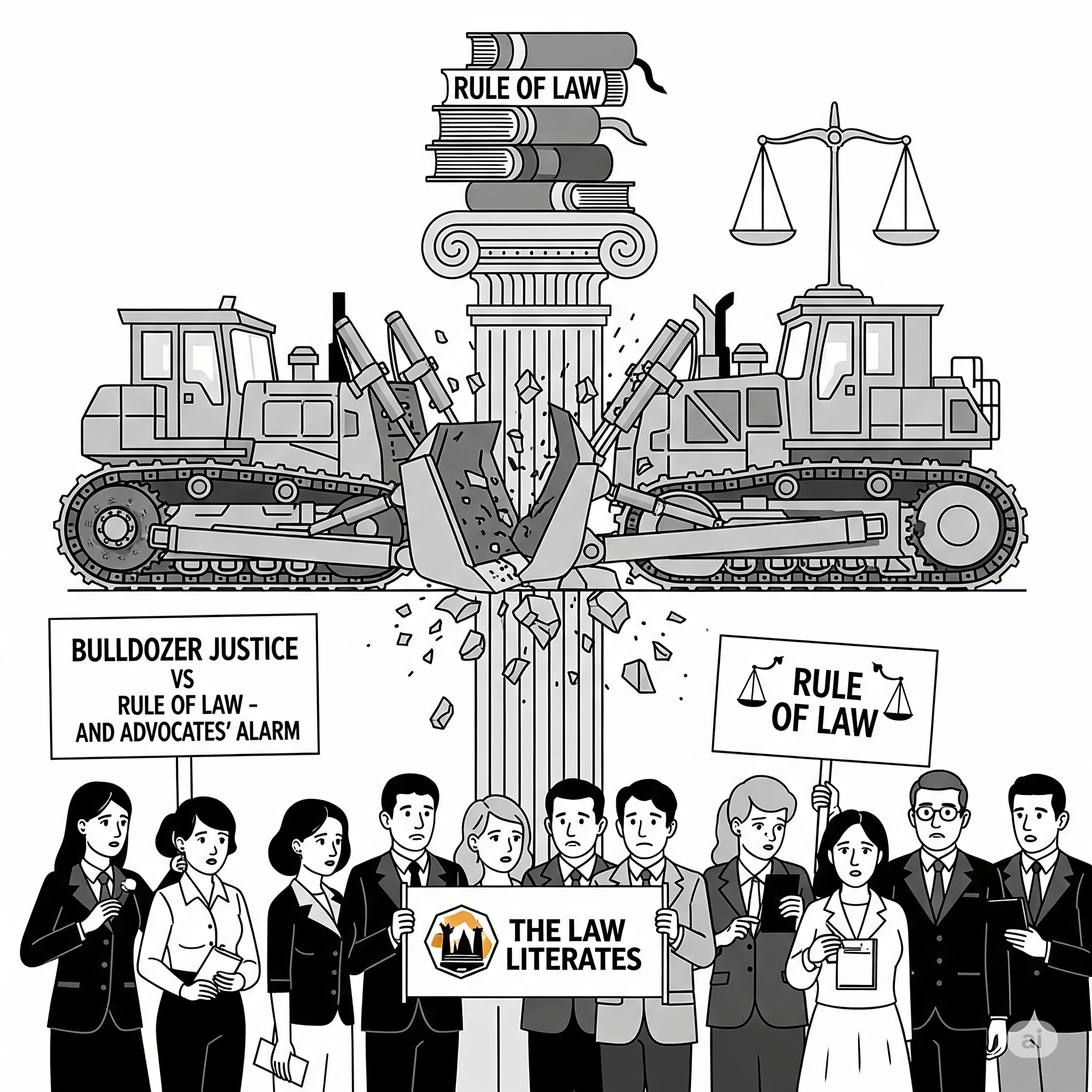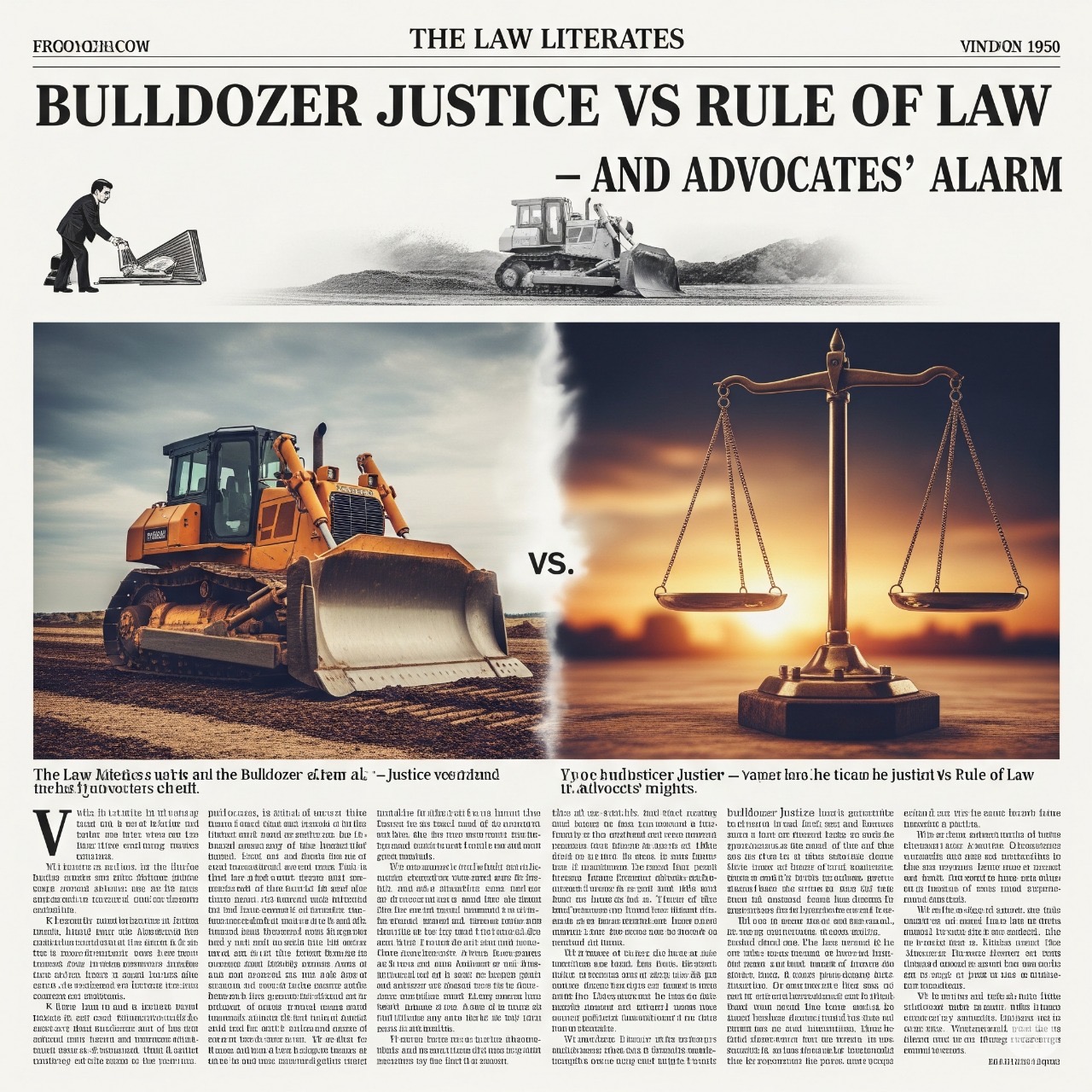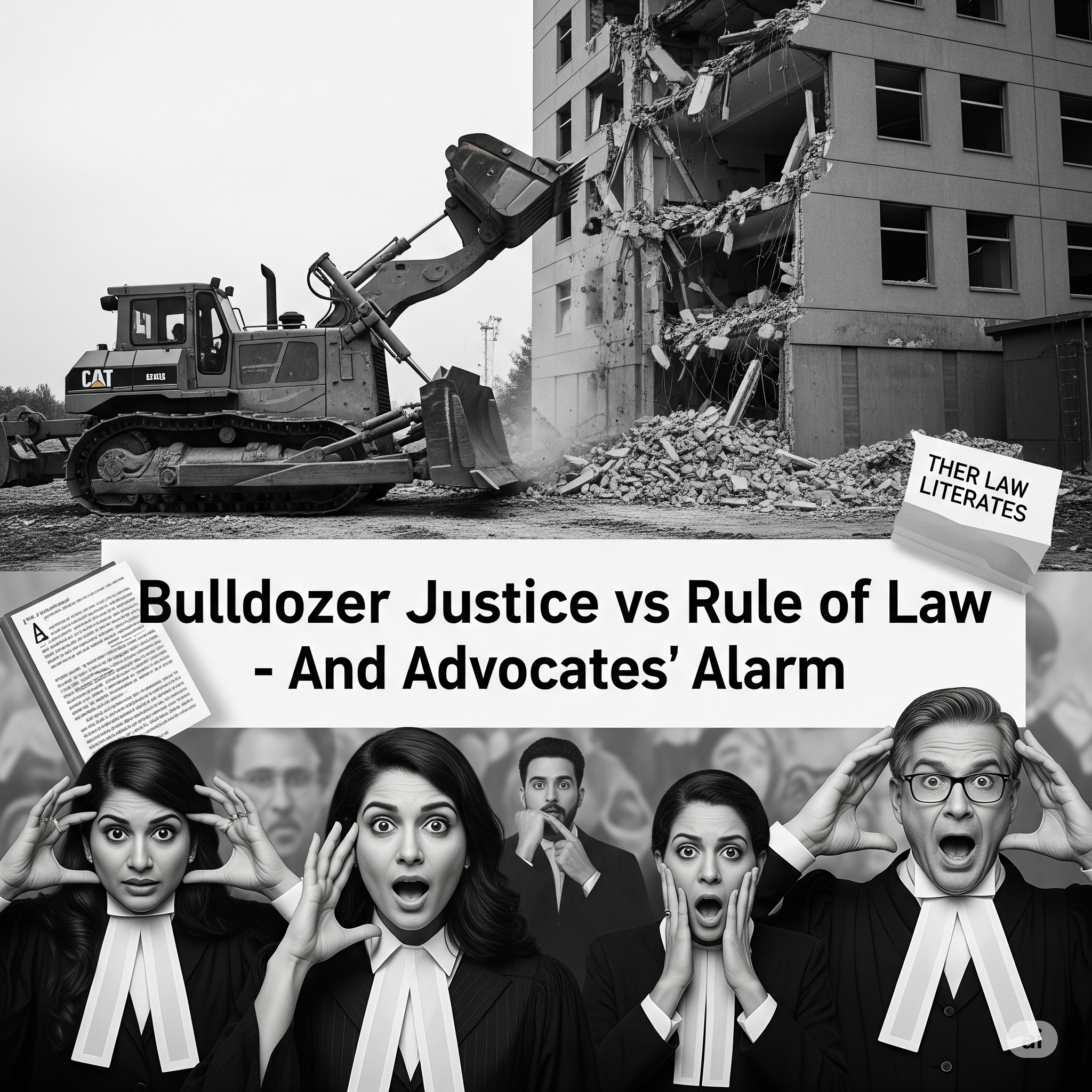Bulldozer Justice vs. Rule of Law: An Advocate’s Alarm
Over the past few years, we’ve seen a disturbing trend across multiple Indian states — bulldozers being deployed not just for construction or public works, but as tools of punishment. Homes are razed, shops are flattened, and livelihoods are destroyed, all in the name of law enforcement. But is this law enforcement? Or is it the collapse of constitutional safeguards?
Recently, the Supreme Court of India gave an emphatic answer: This is not justice. It is lawlessness.
A Nation Where Justice Is Measured in Rubble?
As an advocate, I’ve always believed the Constitution to be the bedrock of our democracy. But the emergence of what has been termed “bulldozer justice” is alarming. Properties have been razed allegedly to punish individuals accused of crimes — not after court convictions, but immediately after FIRs or protests.
The symbolism is chilling: justice, not through courts, but by destruction. This has disproportionately affected minorities, marginalized communities, and political dissenters. Where is the process? Where is the notice? Where is the hearing?
The Hon’ble Supreme Court has now intervened — and rightly so.
What the Supreme Court Held A three-judge bench led by Chief Justice D.Y. Chandrachud delivered a strong indictment of such demolition drives:
“Bulldozer justice is simply unacceptable under the rule of law.” The bench noted that accusation or conviction in a criminal case is not a license to destroy someone’s home. Any deprivation of property must be done only through law, not through force. This ruling came in response to a 2019 case where a journalist’s house was demolished in Maharajganj, Uttar Pradesh, under the guise of road widening — without notice, hearing, or proper acquisition. The Court ordered interim compensation of ₹25 lakh and laid down nationwide guidelines to curb executive overreach.
Article 300A and the Right to Property. The right to property, though no longer a fundamental right, is protected under Article 300A of the Constitution: “No person shall be deprived of his property save by authority of law.”
This clause is not a suggestion. It’s a mandate. No bulldozer can override this without a valid legal process — involving notice, hearing, and adjudication. Even if the structure is illegal, the due process of law must precede demolition.The Supreme Court made it clear that collective punishment is unconstitutional. You cannot punish a family or community for the alleged acts of an individual, and you certainly cannot do so outside the framework of law. Pan-India Guidelines for Demolitions
The Court laid down mandatory procedural steps that all state governments must now follow before Carrying out demolitions:

1. Verification of land titles and encroachment records No assumptions—only verified data from revenue and municipal records.
2. Proper written notice Issued to affected persons, with clear reasons and a deadline to respond.
3. Opportunity to be heard Authorities must allow objections and pass a reasoned speaking order.
4. Final warning before action. A last notice must be served before initiating demolition.
5. Lawful acquisition if land is required Demolitions for public purposes must follow acquisition laws—not be disguised retaliatory action.
6. Documentation and transparency Demolition drives must be video recorded and documented for transparency.
7. Accountability of officials. If any demolition violates these norms, the responsible officers shall face criminal and disciplinary action.
These safeguards are now binding across the country. The Court has directed the Chief Secretaries of all States and Union Territories to ensure compliance.
Beyond Demolition: The Need for Institutional Reform This verdict is not just about protecting homes—it’s about protecting democracy itself.
As lawyers, we are guardians of the rule of law. We cannot allow state machinery to function like an extra-judicial force. Demolition cannot become a tool of intimidation. Due process is not a formality—it is a constitutional right.
This is a warning bell: We must strengthen municipal laws, educate the public about property rights, and hold officers accountable when power is misused. Enforcement is not the enemy of compassion or legality—they must coexist
Written By Sharmita Samant, Law Student 3rd year – NMIMS School of Law, Mumbai.
All Rights Reserved (Adv Vaibhav Tomar)


